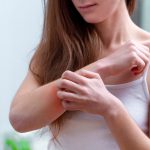Ashwagandha in Sanskrit means “smell of the horse” to correlate it with the strength of…
Read MoreHealthy, radiant, youthful skin is something that we all desire. However, we might unwittingly have picked up harmful habits that actually promote premature skin aging. Let’s take a look at some common habits that can make us look older than we are. Here are a few samples.
Aging is a natural process and your body will start showing aging signs after you reach 30 years of age. Aging happens due to the slowing down of our cell turnover process, collagen breakdown, over-exposure to ultraviolet light, oxidation, inflammation, and glycation. The primary reason for premature ageing is damage to our DNA due to the shortening of telomeres. Telemores are protective end caps to keep the DNA safe. When they shorten the DNA is left exposed to wear and damage. Aging is a fallout of this process.
For some, this biological aging starts earlier than expected which is termed premature aging. We normally relate to aging through visible skin issues but our body ages internally as well. Premature aging of the skin can manifest as loss of skin elasticity, dry and itchy skin, sagging skin, fine lines, wrinkles and age spots. Other visible signs include hair loss, greying of hair and sunken cheeks and temples. Some people might also experience hyperpigmentation around their chest area.
Ayurveda advocates following a comprehensive beneficial routine for preserving youthful vigor and combating aging. This routine addresses aspects like lifestyle, dietary, psychological, and behavioral aspects to restore balance at the level of the mind, body, and emotions.[1]Rao, R. V. (2018). Ayurveda and the science of aging. Journal of Ayurveda and integrative medicine, 9(3), 225-232. But amidst the hustle and bustle of modern life, many of us have actually adopted harmful practices that promote premature aging. Let’s take a look at a few aspects of our daily routine that cause premature aging of skin:
Exposure to ultraviolet radiation from the sun is one of the most significant factors that contribute to the premature aging of your skin. Exposure to UV light causes your skin’s connective tissue (elastin and collagen) to break down. As this supportive connective tissue degrades your skin loses flexibility and strength and takes diminishes your skin glow. It begins to develop wrinkles and sag prematurely.[2][Wrinkles](https://www.mayoclinic.org/diseases-conditions/wrinkles/symptoms-causes/syc-20354927 “Wrinkles”).Mayo Clinic.
To prevent the sun from damaging your skin, always use a sunscreen with a sun protective factor (SPF) of at least 15 that offers both UVB and UVA protection. Also, try to limit exposure to the sun when it’s most intense. You can also wear clothes that cover your arms and legs and use a wide-brimmed hat to protect yourself. Many people seek sun exposure because our bodies can produce vitamin D in the presence of sunlight. However, experts suggest that we need very little time in the sun to do this – about 10 to 15 minutes a day in the sun is thought to be enough.[3][Sun and Skin]( https://newsinhealth.nih.gov/2014/07/sun-skin “Sun and Skin”).National Institutes of Health.
If you use too many skin care products you could end up irritating your skin and fading your skin glow. This holds particularly true for anti-aging products. Use more than one, and you could end up with irritated skin, and this tends to make the signs of aging more visible.
Opt for a simple skincare routine that suits your skin. For most people, this consists of
If you are using any treatment or other medicine on your skin, do it right after you cleanse your skin. You can apply makeup after your sunscreen if you want to.[5][SHOULD I APPLY MY SKIN CARE PRODUCTS IN A CERTAIN ORDER?](https://www.aad.org/public/everyday-care/skin-care-basics/care/apply-skin-care-certain-order “SHOULD I APPLY MY SKIN CARE PRODUCTS IN A … Continue reading
An unhealthy diet can wreak havoc on your skin glow. Research suggests that a diet high in unhealthy fats, refined sugars and other carbohydrates can promote skin aging. Certain kinds of food preparation methods such as baking, frying, and grilling are not foods good for skin glow.[6]Cao, Changwei, Zhichao Xiao, Yinglong Wu, and Changrong Ge. “Diet and skin aging—From the perspective of food nutrition.” Nutrients 12, no. 3 (2020): 870. So if you snack on samosas and fries daily then you could be adding years to your skin.
Go for a healthy diet that includes lots of anti aging foods like vegetables and fruits. Include low-fat dairy products, seeds, beans, nuts, and whole-grain bread in your meals that are foods good for skin glow. A healthy well-balanced diet will not only help keep your skin healthy but will support good health overall. Some anti aging foods that are foods good for your skin:
Your skin has a supple, soft texture due to its water content. For skin to feel soft and not dried out its top layer must ideally contain 25 to 35% water.[8][Dry Skin](https://www.health.harvard.edu/a_to_z/dry-skin-a-to-z “Dry Skin”).Harvard Health Publishing. Research shows that not drinking sufficient water can negatively impact hydration and skin glow.[9]Palma, Lídia, Liliana Tavares Marques, Julia Bujan, and Luís Monteiro Rodrigues. “Dietary water affects human skin hydration and biomechanics.” Clinical, cosmetic and investigational … Continue reading
So, no matter how rushed you are, remember to stay hydrated. Experts suggest that a healthy person needs to drink 2 to 3 cups of water an hour, you might need more if you’re sweating heavily.[10][How much water should you drink?](https://www.health.harvard.edu/staying-healthy/how-much-water-should-you-drink “How much water should you drink?”).Harvard Health Publishing. Keep a water bottle at your desk to remind yourself that you need to hydrate.
Research links poor to poor sleep (5 hours or less sleep per night) to increased signs of intrinsic skin ageing, poorer skin barrier function and lower satisfaction with appearance.[11]Oyetakin‐White, P., A. Suggs, B. Koo, M. S. Matsui, D. Yarosh, Kevin D. Cooper, and Elma D. Baron. “Does poor sleep quality affect skin ageing?.” Clinical and experimental dermatology … Continue reading
Experts suggest that adults typically need between 6 to 9 hours of sleep per night. If you find it hard to get proper sleep then the following strategies may help:
Your daily cleansing routine can take a toll on your skin if it’s too harsh. Strong soaps, long showers, and hot water can remove your skin oils. This dries out your skin and makes it appear more wrinkled.[14][Wrinkles](https://www.mayoclinic.org/diseases-conditions/wrinkles/symptoms-causes/syc-20354927 “Wrinkles”).Mayo Clinic.
Be gentle with your skin. Use a mild soap and limit the time you spend in the shower or bath. Also use warm instead of hot water when you bathe. Gently pat yourself dry after bathing and use a moisturizer if your skin is dry. You can even use a moisturizer which contains SPF.[15][Skin care: 5 tips for healthy skin](https://www.mayoclinic.org/healthy-lifestyle/adult-health/in-depth/skin-care/art-20048237 “Skin care: 5 tips for healthy skin”).Mayo Clinic.
From traffic snarls to looming deadlines, we all encounter stressful situations. And stress can really age you. Our bodies release the hormone cortisol in response to stress. This hormone can degrade collagen, the protein which gives firmness and structure to skin and lead to the development of wrinkles.[16]Chen, Ying, and John Lyga. “Brain-skin connection: stress, inflammation and skin aging.” Inflammation & Allergy-Drug Targets (Formerly Current Drug Targets-Inflammation & … Continue reading [17][Wrinkles](https://my.clevelandclinic.org/health/articles/10984-wrinkles “Wrinkles”).Cleveland Clinic.
Adopt strategies to ward off stress and keep your skin looking young:
According to Ayurveda, your skin care needs should be customized for your body constitution or prakruti. People with
Ayurveda offers many techniques for keeping your skin healthy:
Varnya lepas are used in ayurveda for improving the quality of the skin and enhancing the complexion. For instance, you can prepare a rakta chandanadi lepa by mixing the following ingredients in equal quantities and adding water or milk to make a paste:
The lepa should be applied at a thickness of 1 cm (1/2 angula) and should be removed from the skin once it dries (15-20mins). Lepas are meant to be applied against the direction of hair growth for better absorption. A rakta chandanadi lepa is thought to be useful in improving the complexion and removing dark spots and pimples.
Skin aging is almost irreversible. You can prevent or slow down the process by leading a healthy lifestyle and choosing products (diet, skincare) that nourish your health. Choosing natural products and therapies like ayurveda can help improve skin tone and reverse visible skin aging. Also, ensure that you talk to your doctor regarding skin spots and other visible issues to rule out symptoms of other medical problems like skin cancer. Eat a wholesome diet, use natural protective sunscreen, hydrate and give your body much-needed rest.
Premature aging of the skin is caused due to excessive sun exposure, overuse of chemicals in cosmetic products, eating an unhealthy diet high in carbs, refined sugars and unhealthy fats, poor hydration, lack of proper sleep, abrasive daily skincare routines, and not managing your stress factors.
Not protecting your skin from exposure to the sun’s UV radiation causes collagen breakdown leading to saggy, dry, non-elastic skin. A diet high in unhealthy fats, refined sugars and other carbohydrates can promote skin aging. Dehydration, lack of sleep and inadequate exercise all lead to biological aging of the body and skin.
Avoid excessive and harsh sun exposure and use a sunscreen with an SPF of at least 15 that offers both UVB and UVA protection. Eat a diet rich in anti aging foods like vegetables and fruits, low-fat dairy products, seeds, beans, nuts, and whole-grain bread. Hydrate regularly, do not neglect sleep and manage your stress through meditation and yoga to maintain youthful skin glow.
Not covering your skin with sunscreen or adequate clothing in harsh sunlight leads to the breakdown of the skin’s connective tissue – collagen, which adversely affects skin glow and elasticity. Eating a diet rich in unhealthy fats, refined sugars and empty carbohydrates adds years to your skin age. Other factors include dehydration, lack of sleep and inadequate activity.
Not covering your skin with sunscreen or adequate clothing in harsh sunlight leads to the breakdown of the skin’s connective tissue – collagen, which adversely affects skin glow and elasticity. Eating a diet rich in unhealthy fats, refined sugars and empty carbohydrates adds years to your skin age. Other factors include dehydration, lack of sleep and inadequate activity.
References
| ↑1 | Rao, R. V. (2018). Ayurveda and the science of aging. Journal of Ayurveda and integrative medicine, 9(3), 225-232. |
|---|---|
| ↑2, ↑14 | [Wrinkles](https://www.mayoclinic.org/diseases-conditions/wrinkles/symptoms-causes/syc-20354927 “Wrinkles”).Mayo Clinic. |
| ↑3 | [Sun and Skin]( https://newsinhealth.nih.gov/2014/07/sun-skin “Sun and Skin”).National Institutes of Health. |
| ↑4 | [About face](https://www.health.harvard.edu/staying-healthy/about-face “About face”).Harvard Health Publishing. |
| ↑5 | [SHOULD I APPLY MY SKIN CARE PRODUCTS IN A CERTAIN ORDER?](https://www.aad.org/public/everyday-care/skin-care-basics/care/apply-skin-care-certain-order “SHOULD I APPLY MY SKIN CARE PRODUCTS IN A CERTAIN ORDER?”). American Academy of Dermatology Association. |
| ↑6 | Cao, Changwei, Zhichao Xiao, Yinglong Wu, and Changrong Ge. “Diet and skin aging—From the perspective of food nutrition.” Nutrients 12, no. 3 (2020): 870. |
| ↑7 | [What are the best foods for healthy skin?]( https://www.mayoclinic.org/healthy-lifestyle/adult-health/expert-answers/healthy-skin/faq-20058184 “What are the best foods for healthy skin?”). Mayo Clinic. |
| ↑8 | [Dry Skin](https://www.health.harvard.edu/a_to_z/dry-skin-a-to-z “Dry Skin”).Harvard Health Publishing. |
| ↑9 | Palma, Lídia, Liliana Tavares Marques, Julia Bujan, and Luís Monteiro Rodrigues. “Dietary water affects human skin hydration and biomechanics.” Clinical, cosmetic and investigational dermatology 8 (2015): 413. |
| ↑10 | [How much water should you drink?](https://www.health.harvard.edu/staying-healthy/how-much-water-should-you-drink “How much water should you drink?”).Harvard Health Publishing. |
| ↑11 | Oyetakin‐White, P., A. Suggs, B. Koo, M. S. Matsui, D. Yarosh, Kevin D. Cooper, and Elma D. Baron. “Does poor sleep quality affect skin ageing?.” Clinical and experimental dermatology 40, no. 1 (2015): 17-22. |
| ↑12 | [How to get to sleep](https://www.nhs.uk/live-well/sleep-and-tiredness/how-to-get-to-sleep/ “How to get to sleep”).NHS,UK. |
| ↑13 | [Sleep](https://www.health.harvard.edu/topics/sleep “Sleep”).Harvard Health Publishing. |
| ↑15 | [Skin care: 5 tips for healthy skin](https://www.mayoclinic.org/healthy-lifestyle/adult-health/in-depth/skin-care/art-20048237 “Skin care: 5 tips for healthy skin”).Mayo Clinic. |
| ↑16 | Chen, Ying, and John Lyga. “Brain-skin connection: stress, inflammation and skin aging.” Inflammation & Allergy-Drug Targets (Formerly Current Drug Targets-Inflammation & Allergy)(Discontinued) 13, no. 3 (2014): 177-190. |
| ↑17 | [Wrinkles](https://my.clevelandclinic.org/health/articles/10984-wrinkles “Wrinkles”).Cleveland Clinic. |
| ↑18 | [Stress](https://my.clevelandclinic.org/health/articles/11874-stress “Stress”).Cleveland Clinic. |
| ↑19 | Datta, Hema Sharma, and Rangesh Paramesh. “Trends in aging and skin care: Ayurvedic concepts.” Journal of Ayurveda and integrative medicine 1, no. 2 (2010): 110. |


Dr. Manjula has 12 years of experience in the field of Ayurveda and worked as a Consultant and General Physician for over 5 years before starting her private practice. In addition to BAMS, she also has an Advanced Diploma in Clinical Research and is trained in Panchkarma. She is an expert at diagnosis of the root cause and planning effective treatment for multiple issues.

Ashwagandha in Sanskrit means “smell of the horse” to correlate it with the strength of…
Read More
Pimples - we’ve all had them and we all hate them. And if you’ve ever…
Read More
Don’t all of us want healthy glowing skin? And while there is a ton of…
Read More
Most of us have experienced skin irritations at some point or the other. When the…
Read More